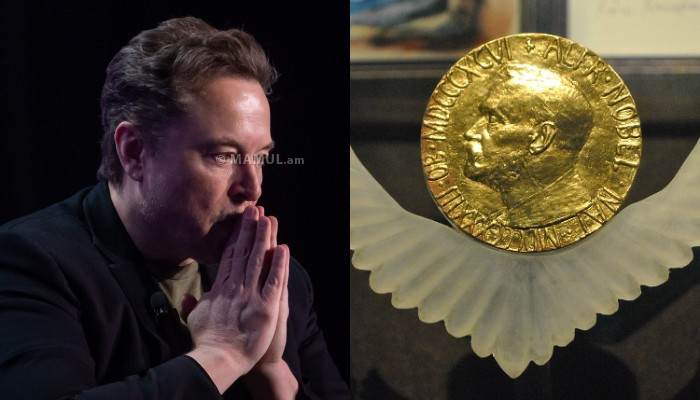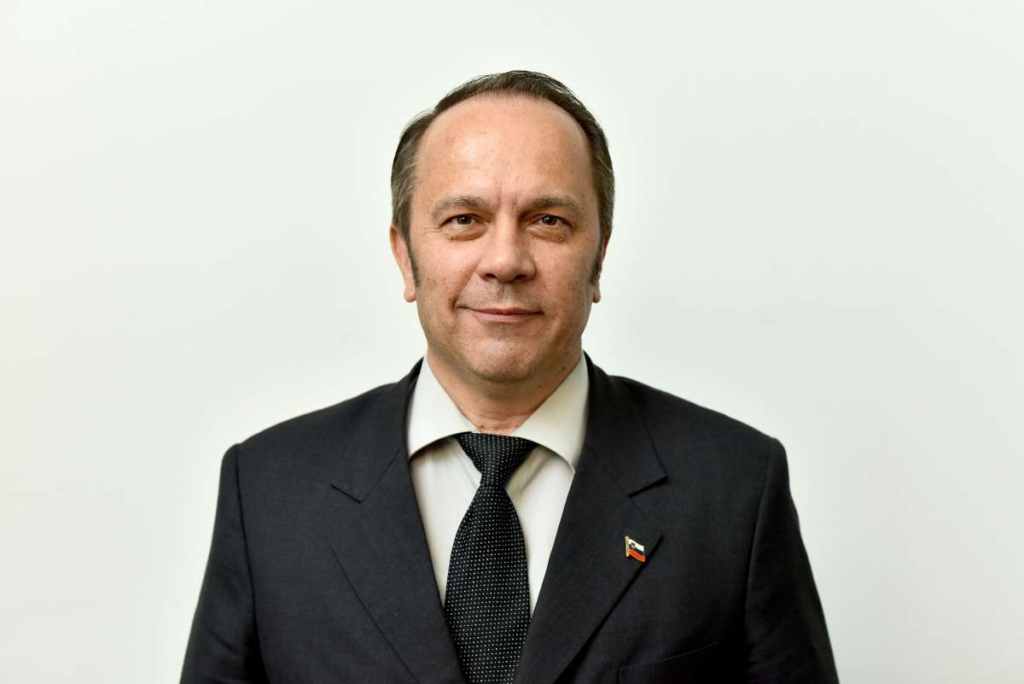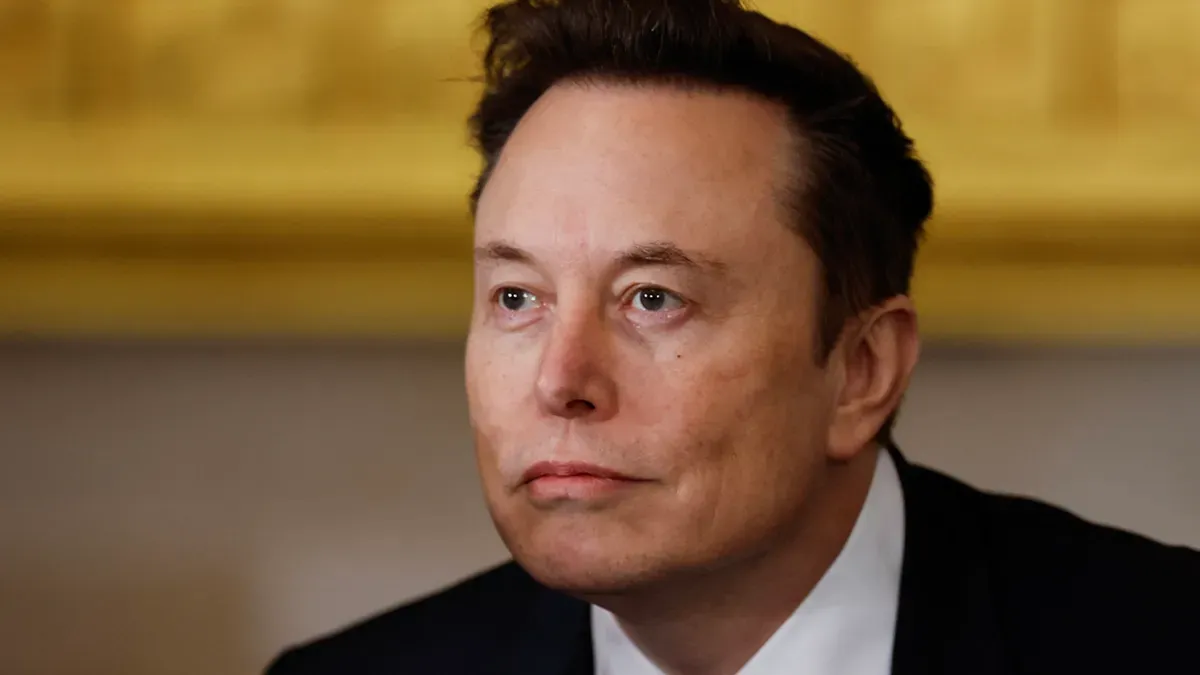Elon Musk Nominated for Nobel Peace Prize 2025, the tech entrepreneur and CEO of companies such as Tesla and SpaceX, joined the ranks of nominees for this esteemed accolade.
The Nobel Peace Prize is one of the world’s most prestigious awards, honoring individuals or organizations that have made significant contributions to the cause of peace.
Slovenian Member of the European Parliament (MEP) Branko Grims submitted Musk’s nomination, citing his efforts to protect free speech and promote peace. This nomination sparked widespread discussion, shedding light on both Musk’s influence and the intricate Nobel Peace Prize nomination process.
Branko Grims’ Nomination: Free Speech as a Catalyst for Peace
Branko Grims, a Slovenian MEP and member of the European Parliament’s conservative Group of the European People’s Party, publicly confirmed his nomination of Elon Musk for the 2025 Nobel Peace Prize on January 29, 2025.
Grims’ announcement was made via a post on the social media platform X (formerly Twitter), where he shared a screenshot of an email confirmation from the Nobel Prize organization. In his post, Grims expressed gratitude to co-proposers and emphasized Musk’s contributions to the fundamental human right of freedom of speech as a cornerstone for peace.
Grims’ decision to nominate Musk stemmed from Musk’s controversial takeover of Twitter in 2022, a move that Grims described as a bold crusade against censorship.
Read : PM Modi Deserves Nobel Peace Prize: Mark Mobius
He argued that Musk’s actions had significantly advanced free speech, a critical component of democratic societies. Grims also highlighted Musk’s broader influence on public discourse, including his leadership in reshaping platforms like X into spaces for open dialogue.
The proposal that Mr. Elon Musk, for his consistent support for the fundamental human right of freedom of speech and thus for peace, receives the Nobel Peace Prize 2025, was successfully submitted today. Sincere thanks to all the co-proposers and everyone who helped with this… pic.twitter.com/QdI4fnbzdU
— Branko Grims (@BrankoGrimsX1) January 29, 2025
In a December 2024 interview with the Brussels Signal, Grims elaborated on his rationale, stating that Musk’s advocacy for freedom of speech had achieved more for the cause than any other individual in the 21st century. He referred to Musk’s efforts as pivotal for Western civilization, underscoring their potential to inspire a global movement toward transparency, accountability, and peace.
The Nobel Peace Prize Nomination Process
The process of nominating candidates for the Nobel Peace Prize is as rigorous as it is prestigious. According to the Nobel Prize organization, any person who meets the nomination criteria may submit a candidate. Qualified nominators include members of national assemblies, heads of state, university professors in certain fields, and past Nobel laureates, among others.
Grims, as a member of a national assembly and the European Parliament, met the qualifications to submit Musk’s nomination. He followed the official process, with the deadline for submissions falling on January 31, 2025.
Once nominations are submitted, the Norwegian Nobel Committee assesses the candidates’ work and creates a shortlist in February and March. From March to August, advisers review the shortlisted nominees, after which the committee selects the laureates through a majority vote in October. The winners are then announced, and an award ceremony is held in December.
The Nobel Prize organization remains highly secretive about the details of nominations, with names and information about candidates kept confidential for 50 years.

However, this confidentiality does not prevent nominators like Grims from publicly sharing their submissions. In the case of Musk’s nomination, Grims’ announcement added a layer of transparency and sparked global interest in the field of candidates for the 2025 Peace Prize.
The Nobel Peace Prize receives hundreds of nominations each year. In 2024, there were 286 nominees, including 197 individuals and 89 organizations. The highest number of nominations in the prize’s history occurred in 2016, with 376 candidates.
Musk’s inclusion in this competitive pool reflects the growing recognition of his influence, not only in the realms of technology and business but also in shaping global narratives around free speech and peace.
The Impact and Controversy Surrounding Musk’s Nomination
Elon Musk’s nomination for the Nobel Peace Prize has been met with a mix of admiration and skepticism. Proponents of the nomination, like Grims, argue that Musk’s efforts to champion free speech align with the Nobel Peace Prize’s mission to honor contributions to peace.
Musk’s decision to acquire Twitter in 2022 was framed by supporters as a fight against censorship, aiming to restore balance and fairness to online discourse.
Critics, however, have questioned the nomination, pointing to controversies surrounding Musk’s leadership style and decisions. Some argue that Musk’s tenure at Twitter—rebranded as X—has been marked by increased misinformation and divisive rhetoric, which critics claim undermines the very principles of free speech and peace.

Despite the controversy, Musk’s influence on global conversations about technology, governance, and free speech cannot be denied. As the CEO of Tesla, SpaceX, and other ventures, Musk has consistently pushed boundaries, inspiring innovation and debate in equal measure.
His nomination for the Nobel Peace Prize highlights the evolving definition of peacebuilding in the modern era, where digital platforms and technological advancements play a central role in shaping societal dynamics.
Grims’ nomination also sheds light on the intersection of politics and the Nobel Peace Prize. In his post, Grims linked Musk’s nomination to the recent political developments in the United States, including the second inauguration of President Donald Trump and the establishment of the Musk-led Department of Government Efficiency. These connections underscore the complex and often polarizing nature of Musk’s public persona and contributions.
Elon Musk’s nomination for the 2025 Nobel Peace Prize by Slovenian MEP Branko Grims underscores the multifaceted nature of Musk’s impact on the world. From his advocacy for free speech to his role in shaping technological innovation, Musk has emerged as a figure of global significance.
Grims’ decision to nominate Musk reflects a belief that freedom of speech is a foundational element of peace and that Musk’s efforts in this area warrant recognition on the world stage.
As the Nobel Peace Prize process unfolds, Musk’s nomination will undoubtedly continue to generate discussion about the role of technology, leadership, and free speech in promoting peace. Whether or not Musk ultimately receives the prize, his inclusion in the pool of nominees highlights the growing importance of these issues in an increasingly interconnected world.

